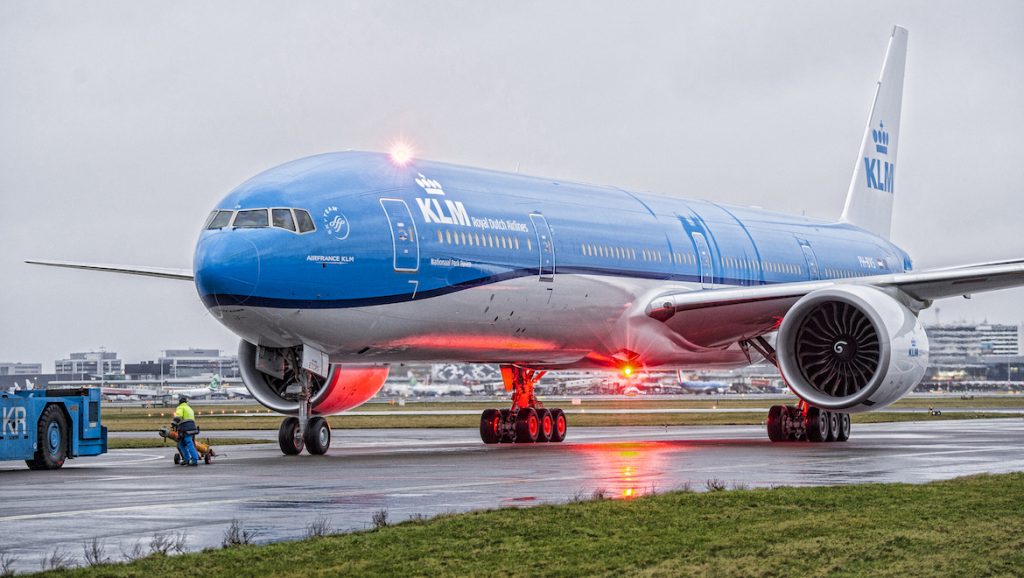
KLM Royal Dutch Airlines has announced it successfully operated a world-first passenger flight from Amsterdam to Madrid utilising sustainably derived synthetic fuel.
The 737 carried 500 litres of the synthetic kerosene, produced by Royal Dutch Shell using carbon dioxide, water and renewable energy sources, mixed with regular fuel to power the aircraft.
KLM said the Madrid flight, which took place on 22 January, combined carbon capture with solar and wind power to produce a fully sustainable kerosene substitute for the first time.
The industry has long looked to reduce its heavy reliance on fossil fuels, resulting in many flights being partly powered by plant-derived biofuels.
However, KLM has said that fully synthetic fuels have taken longer to develop.
“The introduction of sustainable aviation fuel is very important to us,” KLM chief executive Pieter Elbers said in a webinar announcing the news of the flight.
“The captain informed the passengers that this was a big step for the industry. They didn’t notice any difference.”
KLM was also a pioneer in the commercial usage of biofuel on aircraft, having operated the first commercial service to utilise a 50:50 blend of kerosene fuel and used cooking oil, back in 2011.
However, Elbers said that availability of resources since then has “been really a challenge”, with current biofuel blends meeting less than 1 per cent of the airline’s fuel requirements.
Nonetheless, the news is significant, and marks a new step towards lowering carbon emissions across the industry.
The fuel for KLM’s flight was reportedly produced in a Shell lab using carbon dioxide captured from Europe’s biggest oil refinery in Pernis, and from a cattle farm in the northern Netherlands.
Marjan van Loon, Shell’s president for the Netherlands, said the next step for the companies is to turn synthetic fuel from “something that is technically possible to something that is economically viable,” reducing costs and accelerating production.
Meanwhile, speaking of the KLM announcement, Dutch Infrastructure Minister Cora van Nieuwenhuizen said: “Making the aviation industry more sustainable is a challenge facing us all. Today, with this world first, we are stepping into a new chapter of our aviation.”




